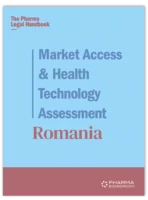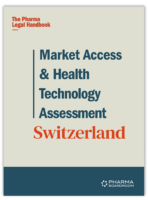Marketing, Manufacturing, Packaging & Labeling, Advertising
Drew & Napier / Iraq
1. What is the authorization process for the marketing of new drugs, biologics, medical devices, non-prescription medications, and other medicinal products?
In Iraq, the authorization process for marketing new drugs, biologics, medical devices, over-the-counter “OTC” medications, and other medicinal products is managed by Iraq Drug Regulatory Authority “IDRA” at Ministry of Health “MoH”.
Companies must submit an application that includes detailed information on the product’s safety, efficacy, quality, manufacturing processes, and clinical data, where applicable. Upon submission, IDRA reviews the data and determines if the product is suitable for the Iraqi market. Once approved, a marketing authorization is granted.
2. What is the authorization process for the marketing of generic versions of these products?
The process for the generic products in Iraq generally involves demonstrating bioequivalence to a reference product. The application for marketing authorization of a generic product requires providing data on the formulation, manufacturing processes, and clinical studies or trials demonstrating that the generic product meets the same standards as the brand-name counterpart. IDRA reviews these submissions before granting approval.
3. What are the typical fees for marketing approval?
Fees for marketing approval in Iraq depend on the type of product and its complexity. The fees cover the cost of reviewing and evaluating the application. The exact fee structure is determined by IDRA or MoH, and applicants should consult these bodies for current fee schedules.
4. What is the period of authorization and the renewal process?
Marketing authorizations in Iraq are typically valid for a set period, often (5) years. The renewal process requires companies to submit the updated information, including safety, efficacy, and quality data.
Renewals must be approved by IDRA and may be required for additional evaluations.
5. What are the requirements, if any, for post-approval pharmacovigilance?
Post-approval pharmacovigilance is essential in Iraq. Companies must monitor their products after approval, reporting any adverse events or safety concerns to IDRA. This includes maintaining systems for adverse event detection, investigation, and reporting, as well as periodic safety updates.
6. Are foreign marketing authorizations recognized?
In Iraq, foreign marketing authorizations are recognized to some extent, especially from reputable agencies like the U.S. Food and Drug Administration “FDA” or the European Medicines Agency “EMA”. However, products still need to meet local requirements and obtain approval from IDRA before marketed in Iraq.
7. Are parallel imports of medicines or devices allowed?
Parallel imports are generally allowed in Iraq but subject to the strict regulations. IDRA sets guidelines to ensure that imported products meet local safety and quality standards. This includes verifying the product’s origin, documentation, and compliance with local regulations.
8. What are the restrictions on marketing practices such as gifts, sponsorships, consultancy agreements, travel and entertainment, or other incentives for healthcare organizations and individual medical practitioners?
Marketing practices in Iraq subject to restrictions to prevent conflicts of interest and undue influence on healthcare decisions. Gifts, sponsorships, consultancy agreements, travel, and entertainment are regulated to ensure the ethical practices. Companies must follow the ethical guidelines, and IDRA or MoH provide specific rules regarding these practices.
9. How is the manufacturing of medicines and devices regulated and by which agencies?
Manufacturing of medicines and devices in Iraq is regulated by IDRA and MoH. Companies must comply with Good Manufacturing Practices “GMPs”, and IDRA oversees inspections and compliance. Manufacturing facilities must meet stringent quality standards to ensure product safety.
10. Are local manufacturing requirements compatible with Good Manufacturing Practices (GMPs) as defined by the U.S. Food & Drug Administration and/or the European Medicines Agency?
Local manufacturing in Iraq must comply with GMPs, which are designed to align with the international standards, including those of FDA and EMA. Compliance with GMPs is essential for ensuring product safety and quality.
11. What is the inspection regime for manufacturing facilities?
Manufacturing facilities in Iraq subject to regular inspections by IDRA or MoH to ensure compliance with GMPs and other regulatory requirements. Inspections can occur on a scheduled basis or as a result of specific concerns or complaints.
12. Are manufacturing facilities open for inspection by foreign inspectors or third-party inspectors as authorized by the FDA/EMA?
Manufacturing facilities in Iraq are generally open for inspection by foreign inspectors or third-party inspectors authorized by the international agencies like FDA or EMA. These inspections ensure compliance with the global quality standards.
13. What are the requirements for storage, packaging, and handling of medicines and devices and their constituent components?
Storage, packaging, handling of medicines and devices in Iraq must comply with the specific regulations to ensure product integrity and safety. Requirements include the appropriate temperature control, secure storage, and proper labeling. These regulations aim to prevent contamination and ensure the product quality.
14. What information must be included in medicine and device labeling?
Medicine and device labeling in Iraq must include key information such as the product name, active ingredients, dosage instructions, warnings, manufacturer details, and expiration dates. This information ensures that healthcare professionals and consumers have the necessary information to use the product safely.
15. What additional information may be included in labeling and packaging?
Additional information can be included in labeling and packaging may consist of usage instructions, storage recommendations, and relevant safety information. However, this additional information must not be misleading or contradict the regulatory requirements.
16. What items may not be included in labeling and packaging?
Items not allowed in labeling and packaging include misleading information, unverified claims, and any content that could result in inappropriate or unsafe use of the product. Regulatory authorities closely monitor labeling and packaging to ensure the compliance.
17. What are the restrictions and requirements for the marketing and advertising of medicines and devices?
Marketing and advertising of medicines and devices in Iraq are subjected to strict rules to ensure the ethical practices. Misleading advertisements, false claims, or unapproved endorsements are prohibited. Companies must follow IDRA guidelines when marketing products to healthcare professionals or the public.
18. Where can medicines and devices be sold or delivered? Can medicines and devices be sold or delivered via post?
Medicines and devices in Iraq can be sold through adopted authorized licensed pharmacies, hospitals. Delivery via post is generally permitted but must comply with regulatory guidelines to ensure product safety during transit.
19. What are the restrictions and requirements for electronic marketing and advertising via email, via the Internet, social media, and other channels?
Electronic marketing and advertising in Iraq are also regulated. Companies must ensure that online advertisements, social media posts, and email campaigns comply with the regulatory guidelines, avoiding misleading claims and respecting consumer privacy.
20. May medicines and devices be advertised or sold directly to consumers?
Direct advertising or sale of devices to consumers is generally allowed in Iraq but must adhere to strict regulatory guidelines. Companies must ensure that advertising is accurate, not misleading, and does not promote inappropriate use of the product. It’s not allowed to advertise the medicines.
21. How is compliance monitored?
Compliance in Iraq is monitored by a regular inspection, audit, and reports submitted to IDRA. Regulatory authorities ensure that companies comply with the regulations to maintain product safety and quality.
22. What are the potential penalties for noncompliance?
Penalties for noncompliance in Iraq vary depending on the severity and nature of the violation. Penalties maybe fines, product recalls, suspension or revocation of marketing authorizations, and legal action. IDRA determines penalties based on the specific circumstances of noncompliance.


































































